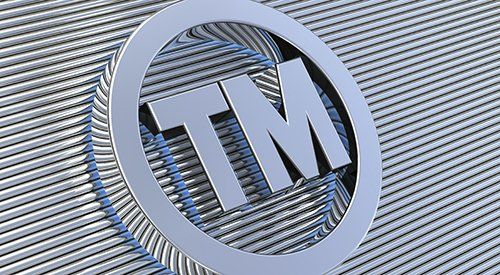Trademark Rights and Common Misunderstandings

While speaking with several clients filing trademark applications, there are common misconceptions about trademark rights that small business owners hold. The two most frequent misunderstandings are the belief that you do not have rights to your mark unless you file for a trademark and that filing for a trademark gives you an exclusive right to the mark. Both of these are somewhat true but include important misunderstandings that small business owners need to understand.
Myth #1: My mark has no protection unless I file for a federal or state trademark. This is not true. The most basic way to gain the exclusive right to your mark is to use it in commerce (signs, labels on products, etc.) first in your industry and limited to the geographic area of your use. Just the act of using the mark gives your business a “common law” right to use that mark exclusively. Note that you must be the first to use it, and your exclusive is only within your industry. For example, you could open an auto body shop called “McDonalds” right next to a fast-food restaurant by the same name and still have that name protected as a common law trademark. Why? Because you were the first to use it in your industry. In trademark law, we refer to this test as a “likelihood of confusion.” Even though your name is identical to the fast-food restaurant next door, there is no likelihood that consumers would think you are operating as a fast-food burger restaurant.
Myth #2: Filing for a state or federal trademark guarantees protection of my mark. This is also not true. Registering a trademark creates a presumption that you are the exclusive owner of the mark. But if another business can prove that they were using the mark first (and that there is a likelihood of confusion), you could be barred from using the mark. However, as noted in more detail below, the original user would have the duty to prove that their rights are senior to yours. The court will assume you are the exclusive owner unless someone else can prove otherwise. But it is important to note that someone might do just that.
So on the one hand you can obtain trademark rights without filing a trademark application. And on the other hand, you do not have a guarantee of rights if you do file. So why on earth do businesses spend the money to register trademarks? Trademarks are a great way to market your goods or services. They indicate to consumers the source of the goods or services. If your business is better than your competitors, and consumers know that, then a trademark will make you stand out.
In addition, as noted above, the filing creates the presumption that you are the exclusive owner. If anyone else is using the mark, you can issue a cease and desist letter or file suit and it is up to them to prove they have rights superior to yours. This is an important advantage because having the burden of proof in a legal matter can be expensive. The registration certificate proves ownership and eliminates the need for extensive evidence, leaving the opponent to bear the cost and burden of building and presenting their case.
Moreover, registering a trademark is a good deterrent to prevent another party from using your mark. Searching the U.S. Patent and Trademark Office’s website for a registered trademark is easy, free, and fairly quick. Before beginning to use a mark, it is common for small businesses to search this database to see if there is a chance that they will be infringing upon someone else’s mark. As noted above, you’ll have rights to your mark and might even win if someone infringes on those rights even if you do not obtain registration of your trademark. But registering your mark might prevent that legal battle in the first place. Lastly, should you be forced to litigate to defend your rights, registration will enable you to recover your attorney fees in such a lawsuit. Such right creates leverages and puts you in a better legal position.
Trademark filings can be challenging and there are several pitfalls to be avoided. If you have a particular name, phrase, or image that you would like to protect from infringement, contact me at 847-705-7555 or tmcginn@lavellelaw.com to discuss the process and resources needed to protect your company’s marks by filing for a state or federal trademark.
More News & Resources
Lavelle Law News and Events











